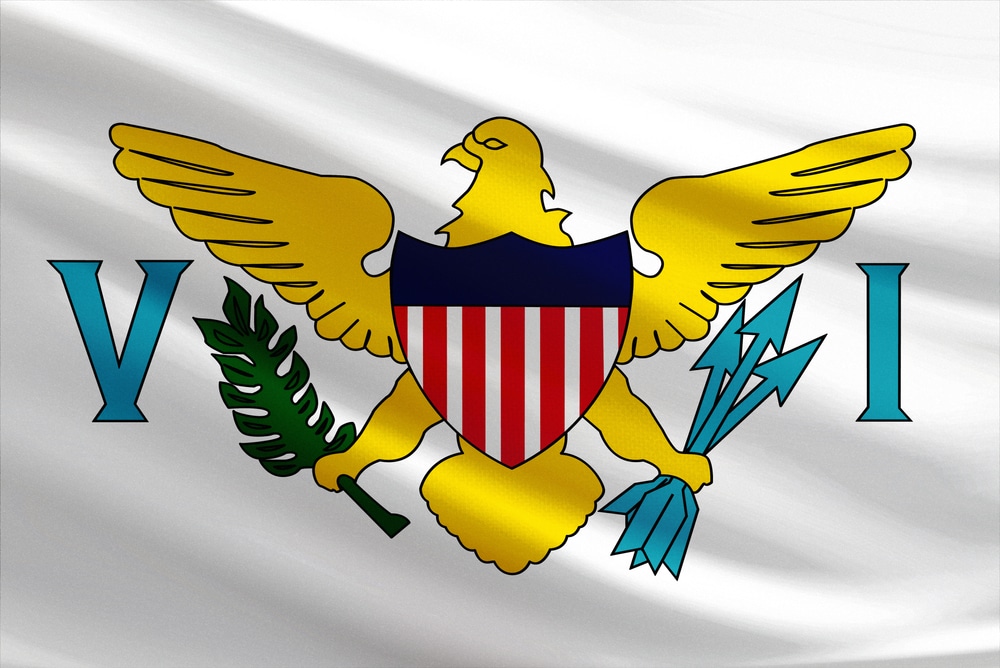U.S. Virgin Islands Bankruptcy Guide

Introduction
The United States Virgin Islands (USVI) presents a unique environment for bankruptcy proceedings, combining federal bankruptcy protection with territorial-specific considerations that address the islands’ distinctive economic and geographic challenges. The territory’s heavy reliance on tourism, vulnerability to natural disasters, and island-based economy creates special circumstances that influence bankruptcy proceedings.
Bankruptcy in the USVI operates under the federal court system while acknowledging the territory’s unique needs and challenges. The District Court of the Virgin Islands handles bankruptcy cases through locations in St. Thomas and St. Croix, serving all four main islands: St. Thomas, St. Croix, St. John, and Water Island.
The territory’s economy, largely dependent on tourism and maritime activities, requires special consideration in bankruptcy proceedings. Seasonal income fluctuations, hurricane vulnerabilities, and the unique challenges of island-based businesses all factor into bankruptcy planning and execution.
Recent years have brought additional challenges, including recovery from multiple hurricanes and the impact of global tourism disruptions. These factors create unique considerations for residents and businesses seeking bankruptcy protection.
Understanding the interplay between federal bankruptcy law and territorial considerations proves essential for successful navigation of the bankruptcy process in the USVI. This guide aims to provide comprehensive information while addressing territory-specific concerns.

Bankruptcy Court Structure
District of the Virgin Islands
The bankruptcy court system in the USVI operates through the District Court, with primary facilities in St. Thomas and an additional location in St. Croix. This dual-location system helps ensure access to bankruptcy protection across the territory’s main islands.
The court serves all four major islands, with specific provisions for handling inter-island travel and documentation requirements. Electronic filing systems and remote hearing capabilities help overcome geographical challenges.
The court maintains comprehensive resources through its website (www.vib.uscourts.gov), providing essential information and forms for bankruptcy proceedings. Local rules address unique territorial considerations while maintaining compliance with federal bankruptcy standards.
Property Exemptions
Homestead Exemption
The USVI utilizes federal exemption standards, currently providing $27,900 protection per individual and $55,800 for married couples filing jointly. These exemptions specifically address island property considerations and include special provisions for hurricane-damaged homes.
Coastal property considerations receive particular attention, reflecting the islands’ geography and vulnerability to natural disasters. Special provisions exist for properties affected by hurricanes or other natural disasters.
National Park proximity and beach access rights create unique considerations for property valuation and protection. These factors often influence how homestead exemptions are applied to specific properties.
Personal Property Exemptions
Personal property exemptions reflect the territory’s unique economic structure. Vehicle equity protection extends to $4,450, while household goods receive protection up to $14,875 in total value.
Special provisions apply to marine equipment, tourism business items, and water sports equipment, reflecting the importance of these industries to the USVI economy. Protection extends to boat and marine navigation tools essential for maritime livelihoods.
Tourism-related business assets receive specific consideration, acknowledging their crucial role in the territorial economy. These protections help preserve economic opportunities while providing necessary debt relief.
Special Territorial Considerations
Territory-Specific Requirements
Bankruptcy filers must complete approved credit counseling that addresses USVI-specific circumstances. Residency requirements ensure proper jurisdiction and application of local protections.
Tourism industry protection receives particular attention, reflecting its importance to the territorial economy. Maritime law considerations affect many bankruptcy proceedings, particularly those involving marine-based businesses.
Inter-island travel requirements and court accessibility issues receive specific consideration in bankruptcy planning and execution. These factors often influence filing locations and hearing schedules.
Median Income Thresholds
Current median income thresholds (as of 2024) determine Chapter 7 eligibility and Chapter 13 plan requirements. Single individuals face a threshold of $41,482, while families of four have a threshold of $77,486.
Geographic variations between islands affect income considerations, with different standards for tourism-centered St. Thomas versus more industrial St. Croix. These regional economic differences influence case evaluation.
Seasonal income fluctuations, particularly in tourism-related employment, receive special consideration in income calculations. The court considers these variations when evaluating cases and payment plans.
Attorney Qualifications
Attorneys practicing bankruptcy law in the USVI must maintain admission to both the District Court and federal court. Understanding of territorial law and local rules proves essential for effective representation.
Maritime law familiarity helps attorneys address cases involving marine-based businesses and assets. Knowledge of tourism industry operations and seasonal business cycles proves valuable for effective representation.
Attorneys must navigate complex interactions between federal bankruptcy law and territorial considerations. Understanding of natural disaster impacts and recovery programs helps ensure comprehensive client representation.
Filing Costs
Current filing fees match federal standards: $338 for Chapter 7 and $313 for Chapter 13 (as of 2024). Fee waivers remain available for qualifying individuals based on income and household size.
Installment payment options help make bankruptcy protection more accessible. Courts consider seasonal income variations when evaluating payment arrangements and fee waiver requests.
Special provisions exist for emergency filings, particularly during hurricane season or following natural disasters. These provisions help ensure continued access to bankruptcy protection during crisis periods.
Special Circumstances
Tourism Industry Considerations
The tourism industry’s prominence in the USVI creates unique bankruptcy considerations. Seasonal business protection helps accommodate regular fluctuations in tourism-related income.
Hotel employee considerations address the specific challenges faced by workers in the hospitality industry. Tour operator provisions help protect essential tourism infrastructure while providing necessary debt relief.
Cruise ship related businesses receive specific consideration, reflecting their importance to the territorial economy. Protection extends to both direct and indirect tourism service providers.
Weather Impact Considerations
Hurricane season preparations significantly influence bankruptcy planning and execution. Storm damage provisions help address the impact of natural disasters on both assets and income.
Emergency filing procedures ensure continued access to bankruptcy protection during natural disasters. Insurance claim coordination helps maximize recovery while maintaining bankruptcy compliance.
The court system maintains specific protocols for handling weather-related disruptions to bankruptcy proceedings. These procedures help ensure continued access to protection despite natural disasters.
Conclusion
Bankruptcy in the USVI requires careful navigation of both federal requirements and territorial-specific considerations. Success often depends on understanding the unique intersection of mainland U.S. law with island conditions and requirements.
Natural disasters, particularly hurricanes, continue to impact bankruptcy proceedings in the territory. Special provisions and protections help ensure that disaster recovery efforts don’t impede access to necessary debt relief.
Tourism industry dependence creates unique considerations for bankruptcy proceedings in the USVI. Understanding seasonal variations and industry-specific challenges proves crucial for successful bankruptcy navigation.
Inter-island travel requirements and geographical considerations influence how bankruptcy proceedings are conducted. The court system maintains flexibility in addressing these challenges while ensuring equal access to protection.
The evolving nature of the USVI’s bankruptcy landscape requires ongoing attention to changing requirements and conditions. Working with qualified professionals who understand these complexities can significantly improve outcomes.
The USVI’s unique bankruptcy system demonstrates how federal protection can be effectively adapted to territorial needs while maintaining essential protections and accessibility. This balance helps ensure effective debt relief while addressing local conditions and requirements.
